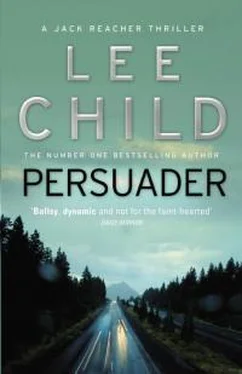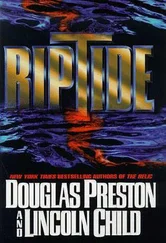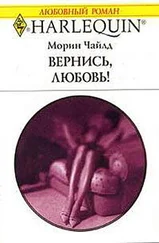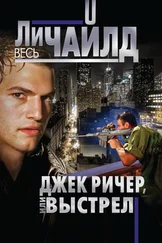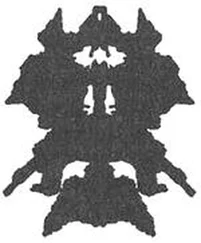“See that?” Beck said.
I saw nothing. No envelopes, no reel-to-reel tapes. Just the signal strength bar, and the battery bar, and the menu thing, and the names thing.
“What?” I said.
“The signal strength,” he said. “It’s only showing three out of five. Normally I get four.”
“Maybe the tower was down,” I said. “Maybe it powers up again slowly. Some kind of electrical reason.”
“You think?”
“There are microwaves involved,” I said. “It’s probably complicated. You should look again later. Maybe it’ll come back up.”
I handed the phone back to him, left-handed. He took it and put it away in his pocket, still fretting about it.
“All quiet here?” he said.
“As the grave,” I said.
“So it was nothing,” he said. “Not something.”
“I guess,” I said. “I’m sorry.”
“No, I appreciate your caution. Really.”
“Just doing my job,” I said.
“Let’s go get dinner,” he said.
He went back to the Cadillac and got in. I clicked the Beretta back to safe and slid into the Saab. He backed up and turned in the road and waited for me. I guessed he wanted to go in through the gate together, so Paulie would only have to open and close it once. We drove back in convoy, four short miles. The Saab rode badly and the headlights pointed way up at an angle and the steering felt light. There were four hundred pounds of weight in the trunk. And the corner of the headliner fell down when I hit the first bump in the road and flapped in my face the whole way back.
We put the cars in the garages and Beck waited for me in the courtyard. The tide was coming in. I could hear the waves behind the walls. They were dumping huge volumes of water on the rocks. I could feel its impact through the ground. It was a definite physical sensation. Not just sound. I joined Beck and we walked back together and used the front door. The metal detector beeped twice, once for him, once for me. He handed me a set of house keys. I accepted them, like a badge of office. Then he told me dinner would be served in thirty minutes and he invited me to eat it with the family.
I went up to Duke’s room and stood at the high window. Five miles to the west, I thought I saw red taillights moving away into the distance. Three pairs of lights. Villanueva and Eliot and Duffy, I hoped, in the government Tauruses. 10–18, assignment completed. But it was hard to be sure if they were real because of the glare from the lights on the wall. They might have been spots in my vision, from fatigue, or from the bang on the head.
I took a fast shower and stole another set of Duke’s clothes. Kept my own shoes and jacket on, left my ruined coat in the closet. I didn’t check for e-mail. Duffy had been too busy for messages. And at that point we were on the same page, anyway. There was nothing more she could tell me. Pretty soon I would be telling her something, just as soon as I got a chance to rip the headliner out of the Saab.
I wasted the balance of the thirty-minute lull and then walked downstairs. Found the family dining room. It was huge. There was a long rectangular table in it. It was oak, heavy, solid, not stylish. It would have seated twenty people. Beck was at the head. Elizabeth was all the way at the other end. Richard was alone on the far side. The place set for me put me directly opposite him, with my back to the door. I thought about asking him to swap with me. I don’t like sitting with my back to a door. But I decided against it and just sat down.
Paulie wasn’t there. Clearly he hadn’t been invited. The maid wasn’t there either, of course. The cook was having to do all the scut work, and she didn’t look very pleased about it. But she had done a good job with the food. We started with French onion soup. It was pretty authentic. My mother wouldn’t have approved, but there are always twenty million individual Frenchwomen who think they alone possess the perfect recipe.
“Tell us about your service career,” Beck said to me, like he wanted to make conversation. He wasn’t going to talk about business. That was clear. Not in front of the family. I guessed maybe Elizabeth knew more than was good for her, but Richard seemed fairly oblivious. Or maybe he was just blocking it out. What had he said? Bad things don’t happen unless you choose to recall them?
“Nothing much to tell,” I said. I didn’t want to talk about it. Bad things had happened, and I didn’t choose to recall them.
“There must be something,” Elizabeth said.
They were all three looking at me, so I shrugged and gave them a story about checking a Pentagon budget and seeing eight-thousand-dollar charges for maintenance tools called RTAFAs. I told them I was bored enough to be curious and had made a couple of calls and been told the acronym stood for rotational torque-adjustable fastener applicators. I told them I had tracked one down and found a three-dollar screwdriver. That had led to three-thousand-dollar hammers, thousand-dollar toilet seats, the whole nine yards. It’s a good story. It’s the sort of thing that suits any audience. Most people respond to the audacity and anti-government types get to seethe. But it isn’t true. It happened, I guess, but not to me. It was a different department entirely.
“Have you killed people?” Richard asked.
Four in the last three days, I thought.
“Don’t ask questions like that,” Elizabeth said.
“The soup is good,” Beck said. “Maybe not enough cheese.”
“Dad,” Richard said.
“What?”
“You need to think about your arteries. They’re going to get all clogged up.”
“They’re my arteries.”
“And you’re my dad.”
They glanced at each other. They both smiled shy smiles. Father and son, best buddies. Ambivalence. It was all set to be a long meal. Elizabeth changed the subject away from cholesterol. She started talking about the Portland Museum of Art instead. She said it had an I. M. Pei building and a collection of American and Impressionist masters. I couldn’t tell if she was trying to educate me or to tempt Richard to get out of the house and do something. I tuned her out. I wanted to get to the Saab. But I couldn’t, right then. So I tried to predict exactly what I would find there. Like a game. I heard Leon Garber in my head: Think about everything you’ve seen and everything you’ve heard. Work the clues. I hadn’t heard much. But I had seen a lot of things. I guessed they were all clues, of a sort. The dining table, for instance. The whole house, and everything in it. The cars. The Saab was a piece of junk. The Cadillac and the Lincolns were nice automobiles, but they weren’t Rolls-Royces and Bentleys. The furniture was all old and dull and solid. Not cheap, but then, it didn’t represent current expenditure anyway. It was all paid for long ago. What had Eliot said in Boston? About the LA gangbanger? His profits must run to millions of dollars a week. He lives like an emperor. Beck was supposed to be a couple of rungs up the ladder. But Beck didn’t live like an emperor. Why not? Because he was a cautious Yankee, unimpressed by consumer baubles?
“Look,” he said.
I surfaced and saw him holding his cell phone out to me. I took it from him and looked at the screen. The signal strength was back up to four bars.
“Microwaves,” I said. “Maybe they ramp up slowly.”
Then I looked again. No envelopes, no reel-to-reel tapes. No voice-mail messages. But it was a tiny phone and I have big thumbs and I accidentally touched the up-down arrow key underneath the screen. The display instantly changed to a list of names. His virtual phone book, I guessed. The screen was so small it could show only three contacts at a time. At the top was house. Then came gate. Third on the list was Xavier. I stared at it so hard the room went silent around me and blood roared in my ears.
Читать дальше
